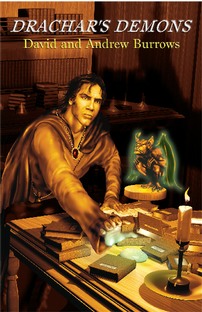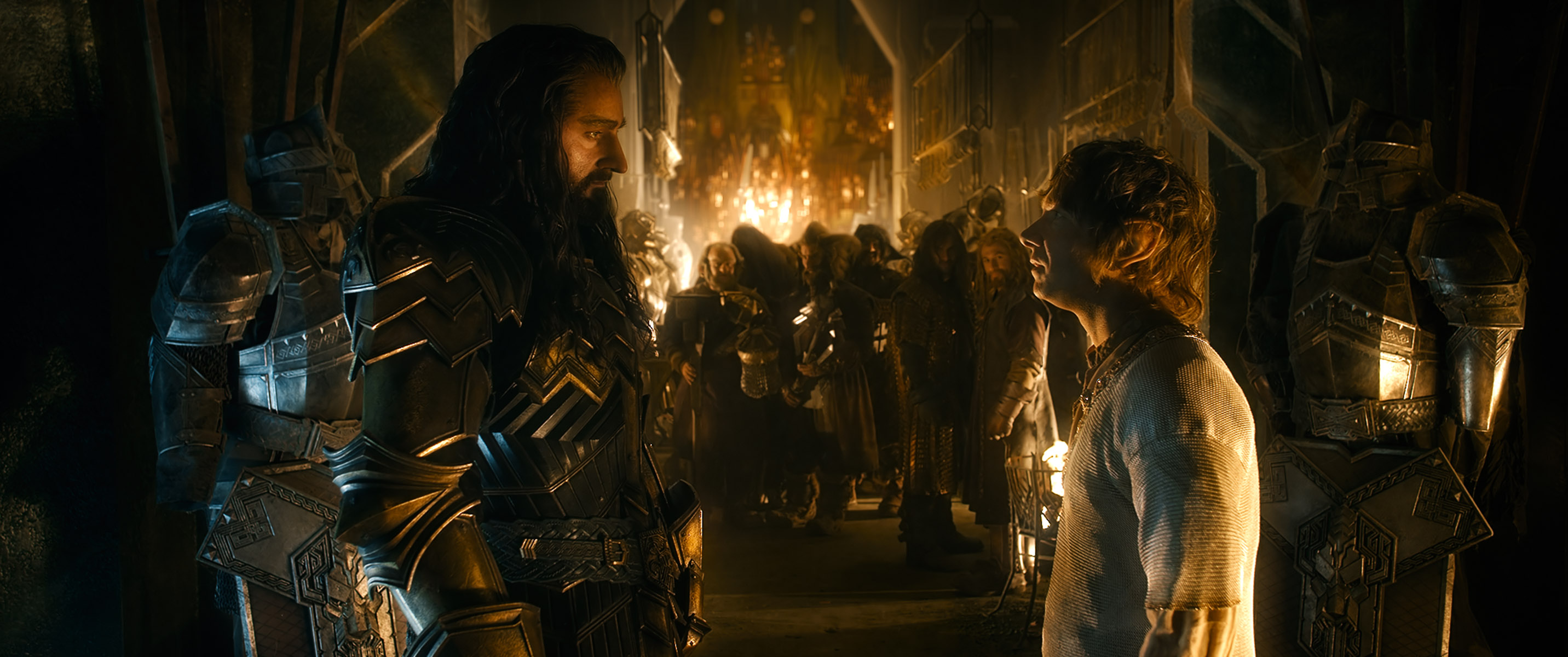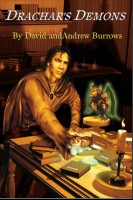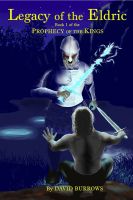“Dad, the gnomes are back,” Charlie
said, running towards Mike, with a dirt-smeared piece of paper clutched in his
hand.
Mike’s heart sank
and he groaned, “Again? How do you know they are back, Charlie? You were wrong
last time, don’t forget.” Mike’s home had been invaded before and at that time they
had relied on the council to get rid of them. It had taken months, as the
waiting list was huge. A few weeks ago Charlie had said the gnomes were back,
but fortunately he was mistaken.
Charlie was innocently
unaware of all the havoc that gnomes created, as he grinned up at his father. A
seven year old had no real concept of the cost that gnomes could cause a
family. Mischief glinted in his eyes as he handed the paper over to his father.
“I found this, dad.”
“Did you let
them in, Charlie?” Mike demanded, his voice suggesting uncertainty whilst his
face looked horrified that Charlie might have actually been stupid enough to
actually do this.
“Of course not,
dad,” Charlie sulked. “I know how angry you get when gnomes get in.”
Mike studied
his son’s face for a moment. The look of mischief was gone, replaced with a
look of concern. He hated being told off.”
Mike took the
paper and unfolded it. It was a child-like scribble and briefly he glanced at
his son to see if it was his joke after all. In a way he wished it was, but
again his son looked genuinely concerned by his father’s obvious anger. His
gaze returned to the paper and another groan escaped his lips.
“They’ll be in
the cellar,” he said, crumpling the paper in his fist, his eyes staring into
the distance. How much would this cost him this time? He regretted not buying
the GnomeZapper, the home protector trusted
by thousands of sensible homeowners. The radio advert ran through his brain;
a mantra that every family hated for it made you think of gnomes and the damage
they wreaked. The device was very expensive, but possibly not as expensive as the
repairs from an invasion. Mike stormed towards the cellar door, his son
following on his heels.
“Can I come
down, dad?” Charlie asked.
For a moment
Mike considered saying no, but his son’s presence might be just what he needed.
The worst thing to do was to lose you temper with a gnome. If threatened, the
gnomes hid and the problems trebled. “Yes, you can come down, but be quiet and
don’t encourage them. If you show kindness we are doomed.” His son looked
genuinely shocked at this and for a moment Mike regretted being so brutal in
his assessment, but his son had to
understand the truth.
Mike opened the
door and then reached behind it for the cellar light switch, “Please be here
and not in the attic,” he mumbled. A friend at work had once had gnomes in the
attic and before he realised that they were there, the roof had collapsed.
Mike and
Charlie descended the narrow stair and almost in front of where the stairs
ended was a hole in the ground. Mike stifled a swear word.
“Suger, eh,
dad!” Charlie offered, looking sympathetic. Amongst the damp and smell of old
bricks was the scent of freshly dug soil. Not only were the gnomes there, but
they were already fairly deep. To one side of the tunnel was another hole in
the wall; bricks had been removed haphazardly, leaving a jagged maw leading
into darkness. A couple of pieces of wood leaned in the hole in a child-like
attempt to shore up the wall and stop it from caving in.
“Go get me a
torch, Charlie” Mike sighed and he listened as Charlie’s feet slapped on the
steps on his way up. “The big torch!” Mike called up as an after thought. He
knelt by the hole in the wall and peered in. That there were two holes was a very
bad sign. He unfolded the paper in his hand and tried to make sense of the wavy
lines. This was probably their equivalent of an architect’s plan. Not that a
plan would help. Gnomes were dreadful builders and they caused havoc wherever
they went.
His musing was
distracted as Charlie, hovering by his side, thrust a large torch into Mike’s eye
line. Mike jumped. He hadn’t heard his son return. He took the torch and
fumbled for the switch, nearly blinding himself by the powerful beam.
“Shit!” he said
before he could think.
“Sugar, dad,”
Charlie scolded him. Every time the “s” word
was used, Cathy, Mike’s wife always interposed sugar instead.
At this point Mike
just didn’t care. He shone the beam into the tunnel. There were already side
tunnels; some slanting up and some down. Bricks had been used to make doorways.
They never used cement and it was purely a mimicry of the buildings they
invaded.
Mike went to
the hole in the floor and shone the beam into that. How the hell did they get through cement? To one side of the hole
and across the back of the cellar was a growing pile of broken, brick, cement
and earth. Looking back down the hole it descended a few feet and then seemed
to divert under his feet in the direction of the same wall as the other hole.
Mike shook his
head.
“Master Builder,”
he shouted into the hole in the ground. He then repeated the phrase calling
into the tunnel in the wall.
“Why are they
called Master Builders, dad?”
“That’s what
they like to be called, son. It’s usually the head of the household.” It was a
nicety Mike could have done with out. He wanted to scream come out here you useless shits, but that was a certain road to failure
in negotiating with these small freaks of nature.
“Maybe they’ve
gone,” Charlie said hopefully, in a child’s naivety that at Christmas was cute,
but now was just annoying.
“No, the little
s...sugars are still here. Once they’re in you can’t get rid of them.”
“Then how...”
Charlie’s
question was interrupted as a small, creature stepped through the hole in the
wall, a hand held across its eyes, shielding them from the glare of the torch. Mike
switched off the torch and studied the creature. He had seen several moles and
wondered how they seemed so clean whilst burrowing under ground. Gnomes had no
such finesse. This creature stank of soil which crusted his hair, beard, mouth,
fingernails and nearly everything else about the creature. Its clothes were
probably stolen, but were as badly engrained with dirt as the creature’s beard.
“Welcome to my
home, Tall Person,” the gnome intoned politely.
The phrase my home rattled through Mike’s brain and
he sucked in a deep breath, looking at Charlie to calm himself. His son’s eyes
shone with wonder. He’d never seen a gnome before and meeting something smaller
than himself who was probably thirty years older was probably a defining moment
in his life.
“Master
Builder,” Mike snarled, pausing to still the beating of his heart and prevent
himself throttling the small creature. “This is your plan,” he said holding up
the piece of paper. “You must have dropped it.” The thought had sprung to
Mike’s mind and desperately, he thought how to develop the train of thought.
The gnomes eyes
lit up and he reached out his hand. “You have my thanks. I was wondering
whether the left turn was right or up instead.”
Mike withdrew
the map marginally, making it clear he was not about to give it up. His mind raced
for ideas.
“Your tolerances
are wrong,” Mike snapped. Your design is flawed and your home will collapse, bringing mine down along with it.
The gnome
growled deep in its throat. “Tolerances are good. I know how to build.”
“Look,” Mike
said pointing at a scribble on the page. “That’s off by a good hands’ width. If
you don’t get it right to a finger’s width then you know the consequences.”
Mike hadn’t got
a clue what he was saying, but criticising a Master Builder for his trade
seemed sensible, given he held his plans.
The gnome tried
to peer at the map, but Mike held it back.
“Know how to
build,” the gnome said, fumbling in a pocket with a dirt encrusted hand. It
pulled out another piece of paper and proudly held it up. “Look, new map and tolerances
clearly marked.”
Inwardly Mike
swore. A door banged upstairs and he heard Cathy’s shout of hello.
“Wait here,”
Mike said to the gnome. Turning on his heel he took the stairs two at a time.
Cathy came around the corner just as he came out from the cellar doorway, a
look of shock on her face.
“Mike, what the
hell...you made me jump out of my skin.”
“We’ve got gnomes!”
he blurted and was gratified to see that his wife’s face fell, sharing his
horror.
“In the cellar?”
she asked, nodding towards the door.
“Damn right and
they’ve started two holes.”
“Two? We’ll
never get rid of them. Do I call the council?”
“No point, they
take months. Remember the last time! You know your collection of milk bottle
tops you have...the old ones?”
“Yes, of course,”
she replied looking suspicious.
“Get them for
me. The gold ones.”
Cath’s face
fell once again. “My mother collected those.”
“Do you want
gnomes?” Mike hissed through gritted teeth.
Cath took an
intake of breath and went to find the milk bottle tops. They were simply gold
coloured foil of course, but Mike was desperate. Cath reappeared moments later
with a transparent plastic bag full of shiny foil.
“Brilliant,”
Mike said snatching the prize and storming down the stair with his wife following
behind.
The gnome and
his son stood looking at each other. Neither spoke which was probably a good
thing. With mounting horror, Mike realised he should never have left his son
alone with the gnome. Gnomes were harmless, but invite one for dinner and you instantly
became a long lost cousin.
“Master Builder,”
Mike started. “You have done a fine job of building. Your holes are the best
I’ve seen.” Mike held the bag of milk bottle tops behind his back. The negotiations
were just starting after all.
The gnome
puffed itself up with pride. All gnomes thought that they were fine buildings,
but no one ever told them that, so this must have been a first.
“I would like
to buy your home from you. I’ll give you gold,” he said. The your home really stuck in his throat.
The gnome’s
eyes shone and Mike trembled. If the gnome knew about metal foil then his plan
was doomed.
“Where we go,
if you buy my home?” the gnome grumbled.
“I’m sure you
will find somewhere. With the gold you will be able to buy a new home,” Mike suggested,
finally taking the risk of producing the gold painted foil, which shone
brightly in the cellar light. The dwarf’s jaw dropped, revealing stumps of
teeth in assorted array, looking like gravestones in an abandoned cemetery.
“S...so much
gold...,” the gnome stammered, a tear appearing at the corner of its eye.
“You and your
family must leave though,” Mike growled, barely suppressing his anger.
“And never come
back!” Cath suggested.
The gnome’s
attention was fully on the bag. “Agreed,” it huffed. Looking back over its
shoulder it shouted, “Others! Come, we leave.”
“How many are
there of you? Cath asked. Mike smiled his gratitude. They had to ensure they all
left otherwise any that remained would simply let the family back in.
“More than
three,” the gnome said and Mike groaned. Gnomes counting went, one, two, three
and more than three, so that could mean any number at all.
Calling his
bluff, Mike said, “We will count you all and make sure that you all leave.”
One by one,
grubby creatures of assorted height came blinking into the light. Which was the
wife and children was difficult to tell. Mike counted nine in all. He was
taking a risk, “More than three,” he agreed nodding. The gnome nodded in reply.
“You will get the
gold when you are outside the house,” Mike announced.
“I am outside
my house,” the gnome grumbled. The others behind him were fidgeting and talking
amongst themselves as though this was a normal event in a normal day.
“Outside of my house,” Mike answered.
“Where’s your
house?” the gnome asked, its eyebrows narrowed in confusion.
Mike sighed,
knowing he could never explain this concept. “Follow me and I’ll show you.”
He led the gnomes
in a procession up the stairs and to the front door which he flung open, revealing
a dark night with puddles of rain water reflecting the light from the surrounding
street lamps.
“Awe, poor
things,” Cath said, and Mike shot her a dark look. Don’t you dare, he stared at her. She must have caught his intent
and her eyes became downcast and she fell silent.
The cold gusted
in, but Mike reasoned gnomes were immune to the cold, given they lived in
tunnels.
“The gold,” the
gnome said holding out its grubby paw.
“Outside,” Mike
nodded.
The gnome’s
shoulders visibly sagged as it stepped over the threshold. The others followed and once again Mike
counted them. Nine. They were all out; or at least he hoped so. He was tempted to
slam the door shut, but gnomes were quick and he had a promise from the
creature that they wouldn’t come back. He threw the bag of foil at the gnome
and then shut the door, sagging against it in relief.
“What if they’ve
already tunnelled outside somewhere and just get back in?” Cath asked.
Mike shook his
head, “Let’s hope not. I’ll call that builder fellow, Zack, and get an estimate
on repairs first thing in the morning. He’ll block up any entrance and
hopefully shore up the house.”
“It will cost
us,” Cath said, her eyes brimming with tears. She had been talking about a
holiday away somewhere and this could use up all their savings.
Mike was fuming.
“I’m going to buy a GnomeZapper tomorrow as well. I should have bought one
months ago.”
“But friends
say that they don’t work,” Cath said, seeing their savings dwindling further.
“Anything is
worth a shot,” Mike grumbled. “It’s cheaper than getting the house’s foundations
repaired each time!”
“I liked the
gnomes, dad,” Charlie added looking up at his parents. “Can’t we get one for Christmas?”
“No. And never
let one in, Charlie!” Mike snapped. “We’ll get a dog. How about that? A puppy,
to help see off the gnomes when it grows up.”
Cath cast him a
withering look, gnomes ate dogs so there was little deterrent there. It was
also an additional cost that they could now ill afford.
Mike was
pleased though. At least the gnomes were gone and the house was still standing.
He knew of people far worse off. What a dreadful day, but finally he felt he
could relax.
The gnome stood on the doorstep
holding his bag of painted foil. “This very good gold,” he said to his family.
“Very light. Easy to carry.”
A light drizzle
caused him to look up; his face becoming streaks of dirt as the water did in
moments what a lifetime wouldn’t otherwise achieve. Leading his family, he
trudged up the road. At an alley a “pssst”, caught his attention and he led the
others into the partial shelter.
“That was
quick,” a voice said. A figure stepped from the shadow, an umbrella held over
his head. “What went wrong?”
“Greeting Tall
Person,” the gnome answered sullenly. Tall Person was not polite sometimes.
“It’s Zack, you
idiot. My name’s Zack. Now, why are you out of that house so quickly?”
“Tall person
give gold,” the gnome said, clutching his prize defensively. His family
gathered around him, looking at the foil in the bag in obvious awe.
“That’s not
gold!” Zack scoffed.
“Must be gold.
Man bought good home with it,” the gnome said sharply, an ugly scowl on his
face.
Zack could see
in the gnome’s eyes that we wasn’t going to be persuaded otherwise and inwardly
he cursed. Then Zack shrugged his shoulders. He gave the gnome a torn piece of
paper with 27 written on it. “See
that shape. Look for that on a door more than three doors up the road,” Zack said,
pointing in the direction he wanted them to go. “They have a cat-flap at the
back door. You can let yourselves in that way.”
“Cat,” some of the
gnomes muttered, licking their lips.
“Cat-flap,”
Zack repeated, mimicking a cat flap opening and shutting with his hand.
The gnome
nodded and grasping the paper he led his family from the alley.
Inwardly Zack was seething. That the
gnomes had been bought so easily with metal foil was very, very annoying. If
people found out about that trick then his house repair business could be out
of work within weeks. Then again there was always his GnomeZapper. That was earning him a small fortune and the only threat
to those sales was from do-gooders who felt the gnomes were being harmed in
someway. Zack growled his anger. The GnomeZapper was completely useless of
course, but he would still send gnomes to the do-gooders homes to silence them,
if he could found out who they were.
He was becoming
a wealthy man, but he trusted no one. He could easily afford a limousine and a chauffer,
but to keep his secret he would walk home. No doubt Mike would phone him in the
morning and on his way home he could start thinking about how much to charge
him. The last time, he had charged Mike a lot, but given the gnomes were in the
house for less than a day he may have to cut his costs. Still, he loved gnomes.
But, he was the only one that did. He wondered where he cold find some more to
grow his business.
 Sword and Scimitar by Simon Scarrow
Sword and Scimitar by Simon Scarrow























